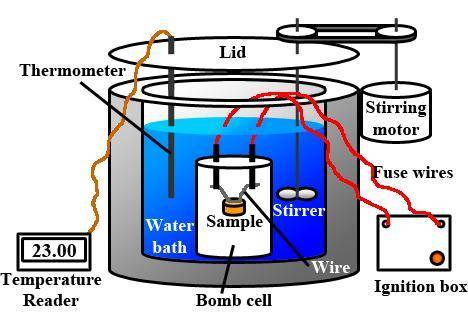
Chemistry, 24.07.2019 16:10 christhegreat1
Acalorimeter contains 22.0 ml of water at 14.0 ∘c . when 2.50 g of x (a substance with a molar mass of 82.0 g/mol ) is added, it dissolves via the reaction x(s)+h2o(l)→x(aq) and the temperature of the solution increases to 28.0 ∘c . calculate the enthalpy change, δh, for this reaction per mole of x. assume that the specific heat of the resulting solution is equal to that of water [4.18 j/(g⋅∘c)], that density of water is 1.00 g/ml, and that no heat is lost to the calorimeter itself, nor to the surroundings.

Answers: 2


Another question on Chemistry



Chemistry, 22.06.2019 15:00
According to the diagram, what sources contribute to the phosphorus found in soil? according to the diagram, phosphorus found in soil contributes phosphorus to what other sources?
Answers: 1

Chemistry, 22.06.2019 19:00
How many liters of ethylene glycol antifreeze (c2h6o2), with a density of 1.100 g/l, would you add to your car radiator containing 15.0 kg of water if you needed to protect your engine to - 21.5°c? for water, kf = 1.86°c m -1.
Answers: 1
You know the right answer?
Acalorimeter contains 22.0 ml of water at 14.0 ∘c . when 2.50 g of x (a substance with a molar mass...
Questions


Mathematics, 21.07.2019 05:30





Mathematics, 21.07.2019 05:30



Mathematics, 21.07.2019 05:30


Health, 21.07.2019 05:30



History, 21.07.2019 05:30



Health, 21.07.2019 05:30


English, 21.07.2019 05:30










